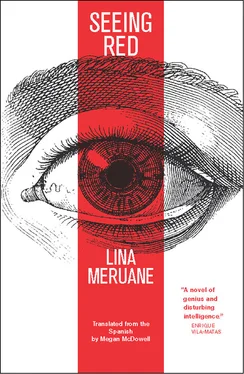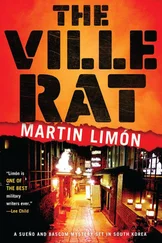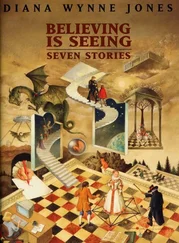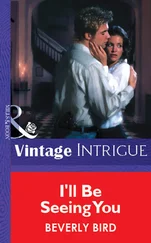Lina Meruane - Seeing Red
Здесь есть возможность читать онлайн «Lina Meruane - Seeing Red» весь текст электронной книги совершенно бесплатно (целиком полную версию без сокращений). В некоторых случаях можно слушать аудио, скачать через торрент в формате fb2 и присутствует краткое содержание. Год выпуска: 2016, Издательство: Deep Vellum Publishing, Жанр: Современная проза, на английском языке. Описание произведения, (предисловие) а так же отзывы посетителей доступны на портале библиотеки ЛибКат.
- Название:Seeing Red
- Автор:
- Издательство:Deep Vellum Publishing
- Жанр:
- Год:2016
- ISBN:нет данных
- Рейтинг книги:3 / 5. Голосов: 1
-
Избранное:Добавить в избранное
- Отзывы:
-
Ваша оценка:
- 60
- 1
- 2
- 3
- 4
- 5
Seeing Red: краткое содержание, описание и аннотация
Предлагаем к чтению аннотацию, описание, краткое содержание или предисловие (зависит от того, что написал сам автор книги «Seeing Red»). Если вы не нашли необходимую информацию о книге — напишите в комментариях, мы постараемся отыскать её.
This powerful, profound autobiographical novel describes a young Chilean writer recently relocated to New York for doctoral work who suffers a stroke, leaving her blind and increasingly dependent on those closest to her. Fiction and autobiography intertwine in an intense, visceral, and caustic novel about the relation between the body, illness, science, and human relationships.
Lina Meruane
Seeing Red — читать онлайн бесплатно полную книгу (весь текст) целиком
Ниже представлен текст книги, разбитый по страницам. Система сохранения места последней прочитанной страницы, позволяет с удобством читать онлайн бесплатно книгу «Seeing Red», без необходимости каждый раз заново искать на чём Вы остановились. Поставьте закладку, и сможете в любой момент перейти на страницу, на которой закончили чтение.
Интервал:
Закладка:
a beat-up truck
Only a few days until the eye doctor comes back from his conference and sees the terminal state of my retinas. Maybe Friday. It’s only Tuesday. Three days during which we have to resolve the rest of our lives. Tomorrow we will stop being tenants, and we’ll settle into an apartment Ignacio will spend the next thirty years paying for. We were moving only a few blocks east, where the neighborhood descends stairs and elevators to meet synagogues and tall hats, sidelocks, synthetic wigs, long black robes, where old orthodox and archaic young Jews share the corner with the Dominican clamor. We were going to live at that hinge: our window to the south, the door framing the north. We talked about nothing but the move and its details, we held ourselves strictly to the concrete, to moving ourselves immediately toward the future. Toward the moment when we pushed the thick wooden door and turned the doorknob. When we breathed in the smell of fresh paint and turpentine, varnish, and sawdust still hanging in the air. We would verify that every repair had been duly made in that apartment whose previous owners had gradually destroyed it. It was imperative to still have an eye, one eye at least to be sure that everything was ok, a sharp eye to make up for a blind one. Because the only seeing eye that I still had was no longer sighted when I moved: my coming and going roiled the blood pooled in my retina, agitated it like a feather duster; the push broom of my movement churned it up. But there was no time for stillness, and I threw myself compulsively into packing. Ignacio went out in search of more empty boxes, while I stowed our clothes in suitcases, stuffed our shoes and boots into enormous plastic bags, put the plates between the sheets and our only blanket, the salad bowls between towels. All by touch. I wrapped mugs and cups in newspaper until finally it was Wednesday and a beat-up truck appeared on the corner. It was noon, three guys were at the door. They wore faces pressed for time and they carried with them six hands full of fingers. A tall and thin black man gave orders to another one, too young and very short, who was teamed up with the biggest of them all: a muscular and perhaps somewhat retarded white guy. (You told me about him, terrified, when you returned from the first floor.) He needed direction, the muscular guy, because he regularly pounded the hallway walls, the doorways, the molding, windowpanes, doorjambs, the roof of the diminutive elevator in which he almost didn’t fit. On the second trip down, the old elevator started to falter; it died on the mezzanine floor, and that guy, the muscular one, was the only one who could lift the mattress on his shoulders. And the bed frame. And the heavy work table and then nine shelves. More books than we would ever read. And also the ones I’d published under a pen name and the manuscript of an inconclusive novel that maybe now I’d never finish, I thought, swallowing my anguish without pausing to chew it. Too much paper and so little furniture. We didn’t have much, but even so it was a lot for one man. So what should have taken us a couple of hours ended up taking four or maybe five. And when everything was finally in the truck, the elevator unfroze and I could go down with the shopping cart carrying the things we’d hidden from the men. The old TV, the radio, two laptops; some half-drunk bottles of liquor and the glasses we’d use to celebrate that very night. You take it over, I don’t trust these guys to be careful. Can you? Of course I can, I half-lied. I can do it perfectly well. They got into the truck to drive down the few blocks separating one building from the other, taking turns pushing because the battery was failing, and then I forgot about them. I lifted my nose to follow the smell of wet cement from some neighbor who must be watering. I felt my way to turn left, and I headed off very slowly in search of the subway station.
shopping cart move
The route I knew no longer coincided with my steps. I couldn’t distinguish streetlights from trees in that murky tide, I couldn’t be sure they were cars I distinguished next to the possible park on the corner. I moved along like a disoriented bat, following intuitions. I followed behind the people who passed me. If they stopped I stopped too; if they crossed a street, I caught up to them with my cart squealing metallically. I rode the elevator down to the oppressive subway station and skirted the turnstiles to make for the long corridor, until I found the exit leading to our new neighborhood. No one seemed to be ahead of me, or behind me. No rigorous rabbis to ask for directions or old ladies with backs bent over their walkers. No old person with flailing cane I could assault with my uncertainty. I slipped through the heavy station doors, and I stopped to train my ear to a bicycle crossing puddles, the slow turning of a car parking in reverse, the sporadic horns honking, the avenue’s green lights. The street wasn’t a place, it was a crowd of sounds all elbowing and shoving. And there was the whisper of a rotten gutter. Garbage bags piled up in the street, chafing against the breeze. A clamor of birds being electrocuted on the wires. Children shouting and chasing each other. Enough, I told myself, because it was vital that I find the sidewalk’s edge. The bottles clanked loudly against each other as I bumped down, and they hit each other again as the cart bounced in potholes and grated against the curb. I raised the front wheels and then the back and I set off again on my bumpy ride. I put my neurons and their bristly dendrites to work on the math of the steps that should take me from one corner to the other. Eighty to the first and turn right. Eighty, left. Right, eighty-nine. And I was almost there. I felt the warm air churning my hair and cooling my face. I must have been close to the entrance to the building when I heard a voice’s hey, its sharp and energetic, what’s up. I stopped. Who could this woman be, in that neighborhood, on that street, at dusk? Who, when I was a new arrival to that intersection? I raised my face with the hint of a meticulous smile of hate, insulting through my teeth all those musicians with perfect hearing, the leathery telephone operators, the blind from birth who are trained to recognize voices. I cursed that woman but also myself for smiling at her with my whole body, with my stupid lips pronouncing a hi there all soaked in saliva. There I was, alone before that voice that assaulted and penetrated my person. The voice kept coming closer, throwing words and some kind of perfume while she, the voice, but especially the sharp shoes, their heels drumming against the cement, said something that the wail of an ambulance kept me from understanding. And then the footsteps moved away. And the perfume began to dissipate. And the woman went on talking with someone submerged far away, inside her phone.
no light bulbs
Ignacio pounced on me as I entered. They just left, he exclaimed. It’s full of boxes, but come see how the repairs turned out. He dragged me by the hand like a child while I tried not to crash into the walls of the narrow hallway. In a minute he had taken me to see the refinished floor of the living room, the newly painted bedroom, the splendors of the kitchen, the shadowy bathroom that we’d leave for another day when we had more money. The apartment felt colossal, and to judge by Ignacio’s eyes (to judge by the memory of your eyes, which are also mine) it still felt uninhabited. We had almost nothing and nearly all of it was his, and we’d decided to bring only what was indispensable. Everything else was so worn out, so collected from streets and subways, so abandoned on curbs or stolen from lives that came before ours. Leave the past where it had perished instead of lugging it with us to that newly remodeled apartment. There’s nowhere to sit, cautioned Ignacio as if excusing himself, but we’ll get some beach chairs and put them in the living room. I answered that yes, of course, whatever you want, while thinking what do you mean? We’ll buy a sofa and a recliner and a pair of chairs and splendid lamps. But first we’ll paint again to cover all the sickly white on the walls. We’ll have to get to work soon, I thought, tomorrow if possible. There were only two days left before the eye doctor’s dreaded news, but we showered happily without a curtain, washing our hair with whatever was at hand. And we put on the same clothes, sweaty but now dry, and we sat on the newly sanded and varnished floor. Look what they did, said Ignacio. It’s too dark, I said. True, he replied, grabbing my hand and guiding one of my fingers to slide along the rough groove, full of splinters, that went across the room. They dragged the bookshelf here, he continued dryly; all the way to here, sorrowfully; the whole length of the room, with something like resigned rage. I saw him coming but I couldn’t stop him, he went on, and I imagined the muscular man’s strong but soft arms, covered by a barely-there, transparent down, his punished-dog eyes, the stupefied muteness of the man who had ruined our floor. But what could a little scratch in the wood matter to us? We’d lay a rug over it. Then we’d lay each other on top of that scratch and the Persian rug I’d pick out once I had eyes again. And once we finished getting laid, exhausted but radiant and satisfied, we’d start all over again. We’d screw like animals on every scratch the house had, in every hole in the wall, like insects. I thought of the scrapes and homemade defects that we’d leave on the house, that we’d collect gradually, maybe. I was worry-free as I stretched out on the floor with my eyes shut tight. Ignacio uncorked a bottle in the kitchen and complained, his voice becoming abstract, where’d you put the glasses, where’d you put the napkins, opening and closing crates and rummaging in boxes. I got lost in the crackle of newspaper between his fingers, in the cork that shot against the wall, and the champagne fizz. Because that was the only certainty: inaugurating our life with glasses washed by shadow, letting ourselves be stunned by the silence. It was night already and we didn’t have electricity, there wasn’t a single bare lightbulb swinging from the sockets. Not even a candle. Ignacio had no clue where the lighter was. He searched through clothes and felt his way over the floor, looking for it but not finding it. And we also toasted to that, because in the darkness of the empty house we were the same: a couple of blind lovers.
Читать дальшеИнтервал:
Закладка:
Похожие книги на «Seeing Red»
Представляем Вашему вниманию похожие книги на «Seeing Red» списком для выбора. Мы отобрали схожую по названию и смыслу литературу в надежде предоставить читателям больше вариантов отыскать новые, интересные, ещё непрочитанные произведения.
Обсуждение, отзывы о книге «Seeing Red» и просто собственные мнения читателей. Оставьте ваши комментарии, напишите, что Вы думаете о произведении, его смысле или главных героях. Укажите что конкретно понравилось, а что нет, и почему Вы так считаете.












